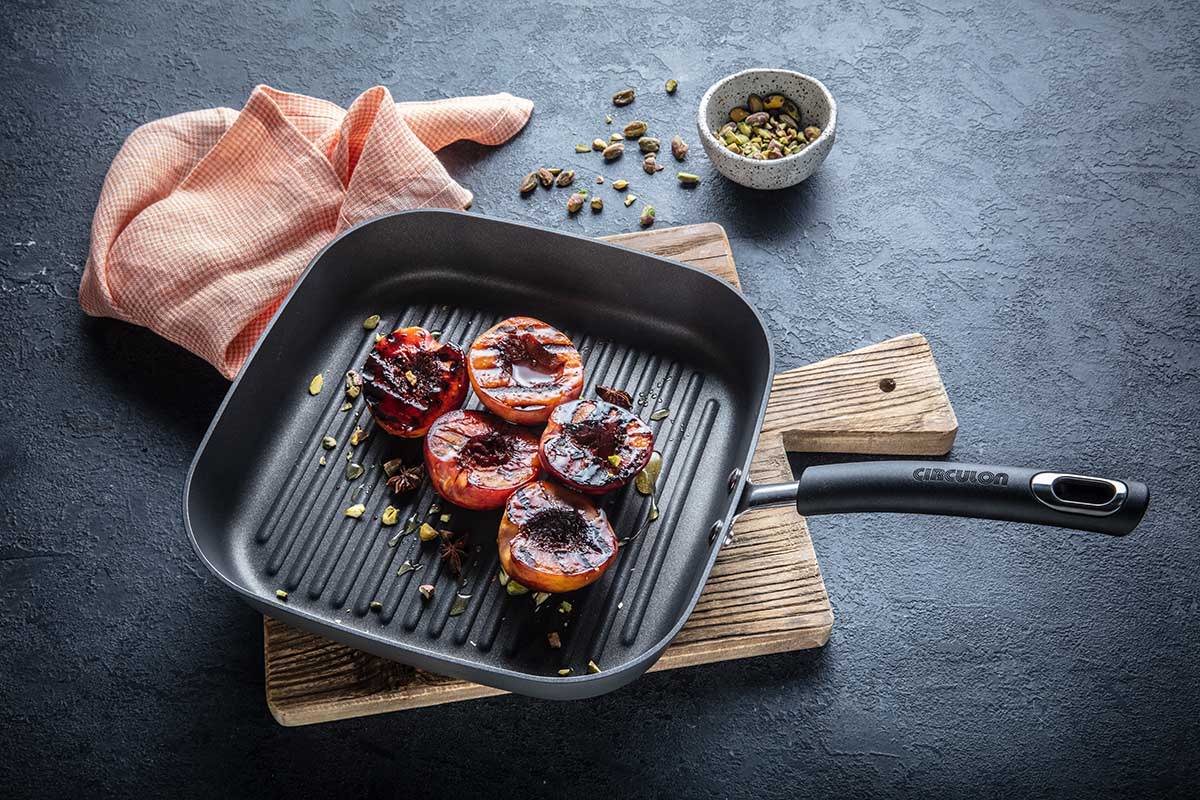How to Season Your Cast Iron Grill Pan for Flawless Grilling
Written By James Morgan
For any BBQ enthusiast, learning how to season a cast iron grill pan is essential. A well-seasoned cast iron pan ensures that your food doesn't stick, enhances the flavor of your dishes, and extends the life of the pan. In this comprehensive guide, we'll walk you through every step of the seasoning process, ensuring that your grill pan is in top condition for your next barbecue.
The magic of cast iron lies in its ability to retain heat, adding a delicious char to your meats and vegetables. But without proper seasoning, you might find your food sticking to the pan and the pan itself prone to rusting. Let's delve into the steps to make sure your grill pan is perfectly prepared.

Why Is Seasoning Important?
Improved Non-Stick Surface
One of the biggest benefits of a well-seasoned grill pan is its non-stick surface. Seasoning involves applying a thin layer of oil to the surface of the pan and then heating it. This creates a slick, non-stick surface that makes cookingand cleaninga breeze. Say goodbye to your food sticking to the pan!
Enhanced Flavor
When exploring how to use a grill pan, you'll find that a well-seasoned pan contributes to the rich, complex flavors that cast iron is known for. The seasoning layer absorbs flavors from past meals, which can enhance the taste of your grilled foods.
Longevity of the Pan
A properly seasoned cast iron grill pan is resistant to rust. The seasoning layer acts as a protective barrier against moisture, which can cause rust over time. By maintaining this layer, you significantly extend the life of your pan, making it a worthwhile investment for any grill master.

What Youll Need
Before you start the seasoning process, make sure you have the following items:
- Clean, dry cast iron grill pan
- High-smoke-point oil (such as vegetable oil, flaxseed oil, or grapeseed oil)
- Paper towels or a cloth
- Aluminum foil
- An oven

Step-by-Step Guide to Seasoning Your Cast Iron Grill Pan
Step 1: Clean the Pan
If you're using a new grill pan, you'll want to remove any factory coating. For a used pan, scrub away old food particles and rust. Use warm water and a brush, but avoid using soap as it can strip away oils that help in the seasoning process.
Step 2: Dry the Pan Thoroughly
After cleaning, it's essential to dry the pan completely. Any remaining water can hinder the seasoning process and cause rust to form. You can place the pan on the stove over low heat for a few minutes to ensure it's thoroughly dry.
Step 3: Apply a Thin Layer of Oil
Using a paper towel or cloth, apply a thin, even layer of the high-smoke-point oil over the entire surface of the pan, including the handle and the underside. Be sure to cover every part to create a uniform seasoning layer.
Step 4: Bake the Pan
Preheat your oven to 375F (190C). Line a baking sheet with aluminum foil to catch any drips from the grill pan. Place the oiled pan upside down on the middle rack of the oven, and bake for one hour. This process allows the oil to polymerize and form that non-stick, protective layer.
Step 5: Cool the Pan
Once the hour is up, turn off the oven and allow the pan to cool inside the oven. This helps the seasoning layer to harden, making it more effective. After the pan has cooled down, it's ready to use!

Maintaining Your Seasoned Grill Pan
Avoiding Soap
While it's tempting to use soap to clean your grill pan, it's best to avoid it as much as possible. Soap can remove the seasoning layer. Instead, use warm water and a brush, or simply wipe it down with a paper towel.
Re-seasoning When Needed
Over time, you may notice that your grill pan's surface isn't as non-stick as it once was. When this happens, it's time for a quick re-seasoning. Simply follow the steps above to restore your pan's non-stick surface and protective layer.
Proper Storage
Store your cast iron grill pan in a dry place to prevent rust. You can also place a paper towel inside the pan to absorb any moisture.
Cooking with a Seasoned Grill Pan
Now that your grill pan is perfectly seasoned, it's time to put it to good use! Whether you're grilling steaks, chicken breasts, or even vegetables, a seasoned cast iron grill pan provides the perfect grilling surface. Curious about what to cook? Check out some amazing grill pan recipes to get started.
FAQs
How often should I season my cast iron grill pan?
It depends on how frequently you use it. If you cook with it regularly, aim to season it every few months. For occasional use, once or twice a year should suffice.
Can I use olive oil for seasoning?
Olive oil has a low smoke point, which makes it less ideal for seasoning. Opt for oils with high smoke points like vegetable oil or flaxseed oil.
What should I do if my pan gets rusty?
If rust appears, scrub it off with a brush and some coarse salt, then follow the seasoning steps outlined in this article.



